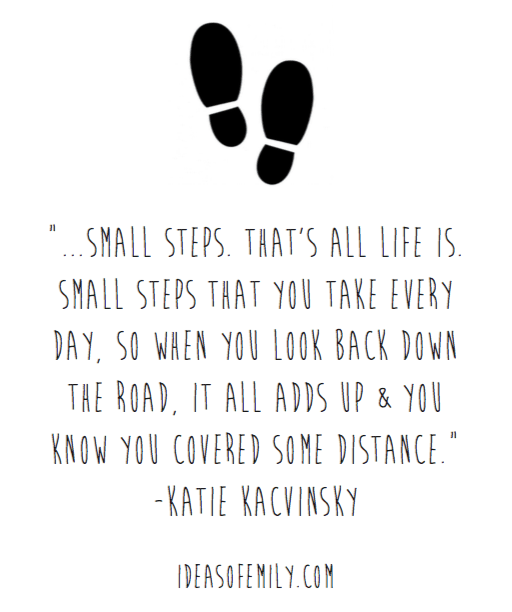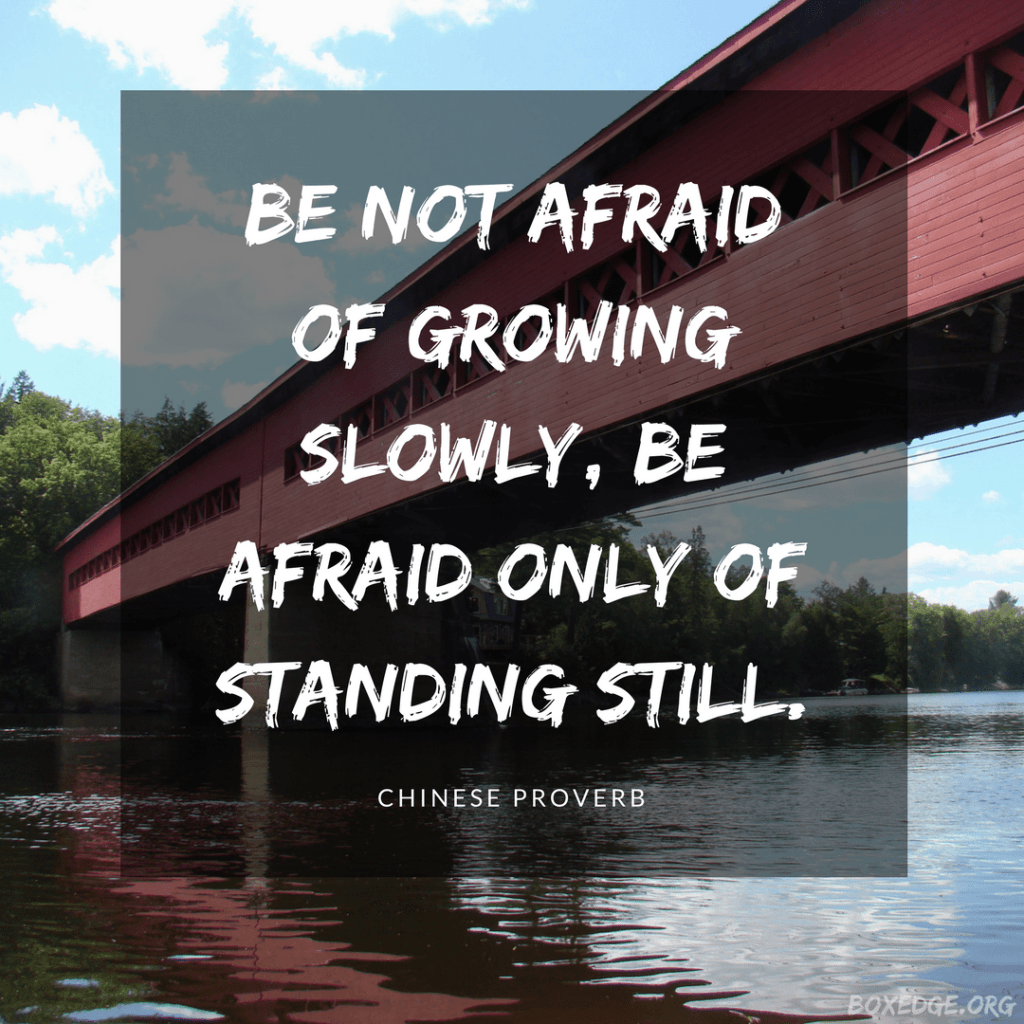I gave up choosing New Year’s resolutions many years ago.
I don’t choose New Year’s resolutions, but I’m really good at choosing goals that I follow through on. I just don’t happen to do it on January 1st.
The idea of choosing New Year’s resolutions simply feels arbitrary to me. I’ve always had a roaring life-long desire to learn and improve myself.
Like the vast majority of us, when I used to choose New Year’s resolutions, I typically forgot what I was aiming to change before I’d even returned to work in January. This didn’t happen as much when I would set other goals in life.
The distinction in progress led me to reflect on why I was unsuccessful at choosing appropriate goals as a New Year’s resolution but quite successful at attaining other life goals I’ve set for myself.
Below you’ll find a list of my 8 top tips for attaining any goals that you set in your life, be it on January 1st or any other day of the year:
1. Pick a goal because you want to improve something in your life, not because someone else is telling you that you should.
As a general rule, people don’t stop smoking because someone else has told them to. They don’t lose weight because someone told them to. They don’t decide to switch careers because someone else has told them to.
Or they might… but the change ends up typically not being sustainable over time. Because they were doing it for someone else.
In order to make true, long-term change in our life, we need to have intrinsic motivation to do so. Behavioural change of any sort is a lot of work. If we’re doing something to please others, we inevitably fail. So, when choosing New Year’s resolutions, make sure you choose a goal that reflects a change that YOU truly want to make in your life.
2. Make sure that your goal doesn’t come from a place of feeling that you aren’t good enough.
Once you’ve chosen a goal, it’s important to reflect on the deeper reasons you want to target this area of your life. Too often, goals are chosen from a place of feeling like we aren’t good enough. In my opinion, this is particularly true when choosing New Year’s resolutions, which often tend to focus on external indicators of what our current society defines as success: to lose weight, exercise more, eat better, earn more money, etc.
Are you choosing a goal to help you feel like you’ll fit in better? Or because you’ve subconsciously bought in to the messages around you of how you “should” be?
Goals are often about accomplishing more. And although there’s nothing wrong with choosing to work on accomplishing more, this isn’t always what is most needed in our lives for true happiness. Check in with yourself to make sure that whatever goal you’re choosing, it’s one that really resonates with who you are, what you value, and where you want to be heading in life.
3. Choose a specific goal.
According to Statista, the top 5 New Year’s resolutions in the US for 2017 were: eat healthier, get more exercise, save (more) money, focus on self-care and read more. These are all general goals.
New Year’s resolutions tend to not be specific enough, which contributes to our failure in achieving them. When goals are not specific, it becomes difficult to put in place the steps necessary to reach them. It also becomes difficult to measure whether or not any change has occurred. This ultimately sets us up to be more likely to feel like we’ve failed.
Instead of setting a goal such as “I want to eat healthier”, choose something more concrete, such as “I will eat fruits and vegetables with each meal”. Working on this smaller goal will get you closer to your long-term goal of being healthier. And once you’ve integrated that behavioural change, you can choose another smaller goal to work on. Because you’ll have more chances of actually attaining the first.
3. Identify possible barriers that might hold you back from reaching your goal.
What barriers have gotten in your way in the past, that have left you unable to reach the goals you’ve set out? Can you predict possible barriers that could get in your way? Clearly identifying potential barriers will help you to more effectively brainstorm how to work to not let those barriers stop you.
For instance, when I was transitioning from my old career to my current one, I found myself struggling to have the time I needed to move forward with my new life goals. With some reflection, I realized that fear was holding me back from decreasing the hours I was spending on other contracts, prohibiting me from investing more time in my own company. This realization allowed me to decide to work to overcome this fear and to take the steps that I needed to take to free up more time in my schedule.
4. Decide if this is the right time in your life to commit to this particular goal.
We can sometimes find ourselves choosing New Year’s resolutions that we want to work on, only to realize later on that it may not have been the best timing in our life to work on that particular goal. As you reflect on potential goals, be absolutely realistic with yourself.
Do you truly have the time and energy to pursue the goal you wish to pursue? And if not, are you able to carve that out in your life? If not, allow yourself to decide that this might be a goal you will put on pause for now and focus on a more realistic goal for now. Otherwise, you’re only setting yourself up for failure.
For example, after the loss of my mother and uncle, followed by my father, there were moments when it was all I could do to get dinner on the table. This would have been a bad time to choose to try to incorporate major life changes. Choosing New Year’s resolutions that end up adding more stress and chaos to our lives mean that they are less likely to stick.
5. Choose an outcome that is attainable within the next 6 months.
It’s human nature to feel discouraged when we’re working towards goals that we continue to struggle to meet. When choosing New Year’s resolutions, choose a goal that you feel can likely be attained within the next 6 months. If you don’t think this is possible with the goal you want to work on, break it down to a smaller step and set that as your goal.
For instance, if you’d like to change careers, this may or may not be attainable within a 6 month time frame, depending on a variety of different factors about your life. If this doesn’t feel attainable within 6 months, what does?
Could you decide that, within the next 6 months, you’ll have decided what field you want to move into and have a plan of the steps needed to accomplish your career shift? If there are financial constraints impacting this goal, could you decide that you are going to save X amount of money for each of the next 6 months, to help you get there? Again, reflecting on possible barriers helps you to get more clarity in terms of what is more likely attainable in the next 6 months.
6. Clearly outline concrete steps on how to get there.
Even with smaller goals, there are often a few behavioural changes that need to take place to be able to get there. Reflecting, in advance, on the sub-steps necessary to attain your goal will help you to get there. For example, if your goal is to save $200 more per month, you’ll need to make decisions as to how you will get there. You might decide to cut your daily coffee run. You may decide to work a few more hours, or get an additional job. You may decide to no longer use credit cards. Outlining the concrete steps that you will increase the chances that you will attain your goal.
7. Identify a support system and be willing to rely on them.
Pick 2 or 3 people who typically offer you support in a way that works for your personality. Ask them if they would be willing to support you in attaining your goal. This might look like helping you brainstorm through challenges, working through fear or resistance, or helping to keep you accountable. Then give yourself permission to reach out to these people to help you get to where you are wanting to go.
8. Exercise self-compassion.
Attaining behavioural change is never a linear path. Ever. There will inevitably be periods when you struggle to attain your goal. This is simply what life, and human nature, are like. The more you beat yourself up for these struggles, the more difficult it becomes to get back towards working on your goal. It becomes a self-defeating cycle.
For instance, as I worked to incorporate daily meditation into my life, I noticed that part of what was getting in my way of developing a regular practice was that I was not offering myself self-compassion for days when I did not meditate. Missing one day led to missing several, which came from a place of feeling badly about myself. I felt that I wasn’t committed or disciplined enough.
Offering my self-compassion helped me to get back on the path of attaining my goal more quickly. Allow yourself to be human and try to not see a step backwards as a failure, but rather, simply as a part of life. This will help you reach your end goal more quickly, with a lot less negative self-talk.
Effecting any sort of behavioural change takes time. The bigger the change, the more time and effort it’ll take for the new desired outcome to become part of your typical functioning.
Considering the above 8 tips while choosing New Year’s resolutions will leave you with a much better chance of looking back on 2019 as the year when you finally stuck to your New Year’s resolution.
If you liked this post you may also like:
Setting Boundaries and Sticking to Them







